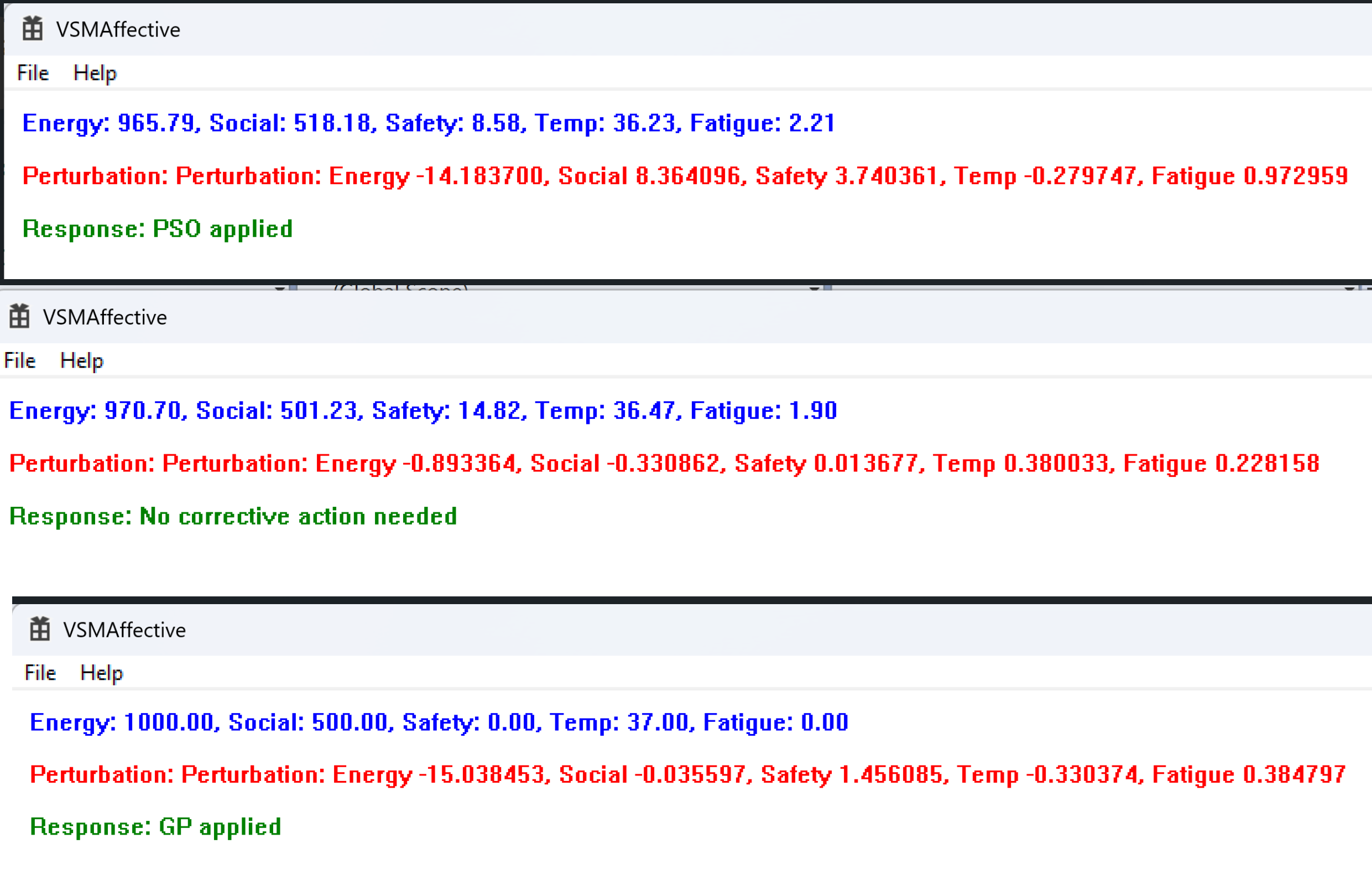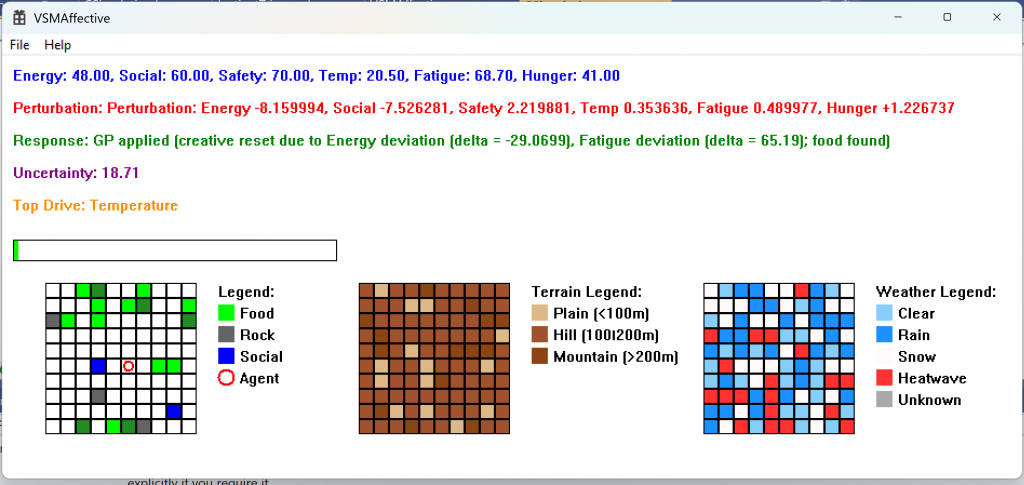

We have developed a prototype affective homeostat controller, inspired by the neuroscience of Mark Solms, that monitors motivational drives and adaptively seeks to restore balance. Implemented in C++, the system is modular and extensible. Solutions are derived via Particle Swarm Optimisation (PSO) when small, incremental adjustments are sufficient, and via Genetic Programming (GP) when creative or novel strategies are required.
A simple output example is shown. We will soon deploy an interactive, continuously running version on this webpage. The controller operates in real time, monitoring inputs and adjusting actions to sustain homeostatic regulation. It is structured within a Viable System Model (VSM) hierarchy, complete with algedonic alerts and interrupt mechanisms, enabling recursive monitoring and adaptive intervention.
Why PSO?
Particle Swarm Optimisation excels in transient scenarios where the next solution is near the current one. In contrast, Genetic Programming (or Neural Networks) is better suited when creative or entirely new solutions are needed to restore homeostatic balance. Pre-trained solution components can also be recombined dynamically for faster responses.